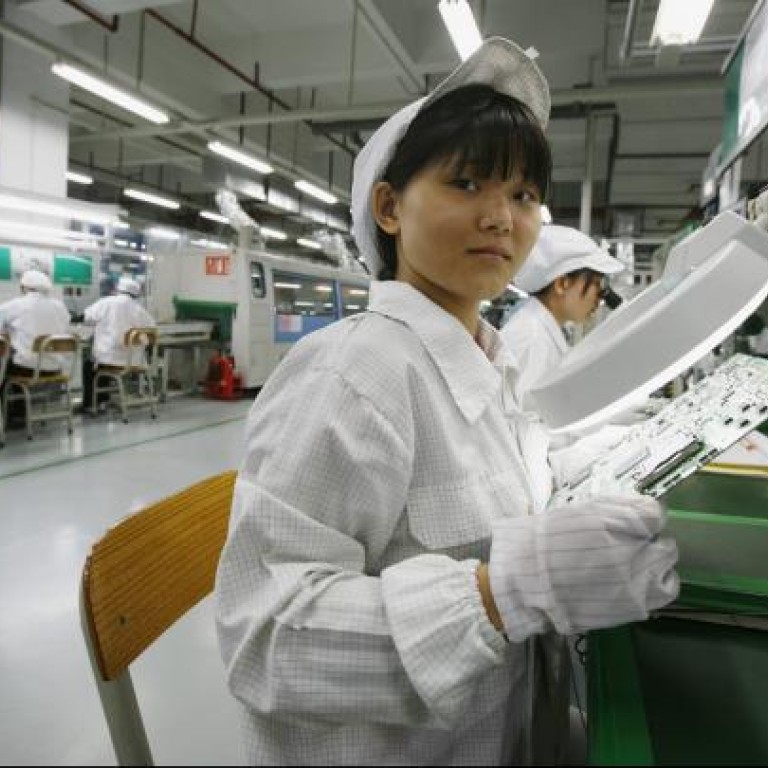
Why Chinese companies are creating foreign jobs
This is the first part of a two-part study of China's growing overseas business clout by George McKibbens, a Guangzhou-based writer and educator. who teaches history at South China Normal University and writes for Guangzhou News Express.
Each year China produces over 6 million university graduates while Chinese companies are expanding overseas. New free trade zones all over Africa and the Middle East are courting the foreign investment with tax incentives and low operating costs, reminiscent of China’s open door policy in the 1980s. Now the world is seeing more ‘sold in China’ than ‘made in China.’ To understand this corporate migration, the city of Shenzhen is a good place to start.
Late last year, Shenzhen police assaulted workers on striking outside a printing factory during Xi Jingping’s visit; 20 years ago there would be no unions or strikes. Shenzhen is the home of China’s growing labour movement which kicked off in May 2010 with the Foxconn suicides, when over a dozen employees leapt to their deaths from the roof of the factory.
This put the spotlight on Foxconn, a Taipei electronics manufacturer best known for its production of iPhones and iPads which have a global cult following. Apple began an over-the-top worker appreciation campaign while Foxconn quietly expanded to Brazil. The attraction to Brazil was not cheap labour but lower operating costs and tax breaks. In April of 2012 workers in the city of Jundiai threatened to strike over poor working conditions, showing that an iPhone assembly line is no dream job on any continent.

In the summer of 2010 Guangdong was the platform for a series of high-profile walkouts at factories like the Honda factory in Foshan. The result was an annual increase in the minimum wage in China’s 12th Five year plan. At the moment, Chinese factory workers are making more money, but white collar workers are still horribly underpaid. With a market saturated in competition, Chinese companies are outsourcing to Africa, South America, the Middle East, and, in a few cases, North America.
In the new industrial development zone of Dukem, Ethiopia a factory owned by Huajin, a Shangdong company, produces 2,000 pairs of shoes a day. Huajin exports shoes to the US and Europe, and by 2014 is expected to expand and create 20,000 jobs in Ethiopia, according to a report by Ventures Africa.
In 2011 CNN Africa interviewed the factory manager who said she recruited 84 college graduates to work on the production line. That may come as a shock to some -- how many Chinese college graduates compete to work in shoe factories?
Ethiopia not only offers lower production costs but cheaper materials, particularly leather for shoes.
At this point, sceptics would point out that Ethiopia has drawbacks; it's bordered by Somalia and lacks good roads - so how>do these shoes go from the factory to the port?
It’s not easy: China Wuyi Company and other state owned groups have spent the past four years building roads in East Africa, connecting Ethiopia with Kenya’s new super highway that even links the most dangerous parts of Somalia and Sudan.

The shoes reach Somalia and are guarded by China’s Anti-Piracy Task Force which has been patrolling the Red Sea since 2009.
Safety and efficiency has always been the magic of Chinese manufacturing. Now that safety and efficiency is being exported, as Chinese factory workers take to the picket lines.
In West Africa service jobs are moving to Nigeria’s Lekki Free Trade Zone, an artificial island off the coast of Lagos, Nigeria’s capital. In Lagos, Huawei Technologies operates a factory, corporate office, and numerous call centers. Chinese graduates looking for work might want to post their CVs on hotnigerianjonbs.com. It has opportunities in human resources, marketing, and development.
Why did Huawei fall in love with Africa? The answer is surprisingly simple: Huawei was a Shenzhen startup company in 1998 that didn’t stand much chance against local giants like China Mobile and big foreign brands. So they found new markets.
Today Huawei produces the best selling smartphone in Nigeira, Kenya, South Africa and Tanzania, and moved further east to Saudi Arabia, Pakistan. In 2011 and 2012 it was named “Middle East Vendor of the Year” in the CommsMEA Awards in Dubai.
China’s urban elite have a fetish with overpriced foreign brands, which is why Lenovo, China’s lead computer maker, markets most of their goods to rural provinces.
Foreign status and the extra panache attached to a foreign brand is one of the reasons Chinese companies move abroad. The number one car in China is a Buick and the number one mobile phone is a Samsung Galaxy. Last year a teenager in Hunan province sold his kidney for a iPhone 4. Now the iPhone 5 is made in Foxconn’s Brazil plant. Who knows what organs the teenager may sacrifice for the very latest iPhone.
Just south of Guangxi Province Texhong, a Shanghai-based textile producer has relocated its cotton and spandex production to Vietnam while sending exports to China. The garment industry in Bangladesh is also profiting.
Vancl, China’s largest online clothing distributer has moved a portion of its production to the capital city of Daka. Jordan is another outsourcing hot spot. The Wanshunhao Industry Company has recently financed a textile factory in the city of Al Hassan.
The migrations show that fears over China's huge manufacturing base are overblown. As some observers will already tell you, China's ballooning middle class and surging spending power are already having more influence on the global economy than its manufactured goods ever did.
